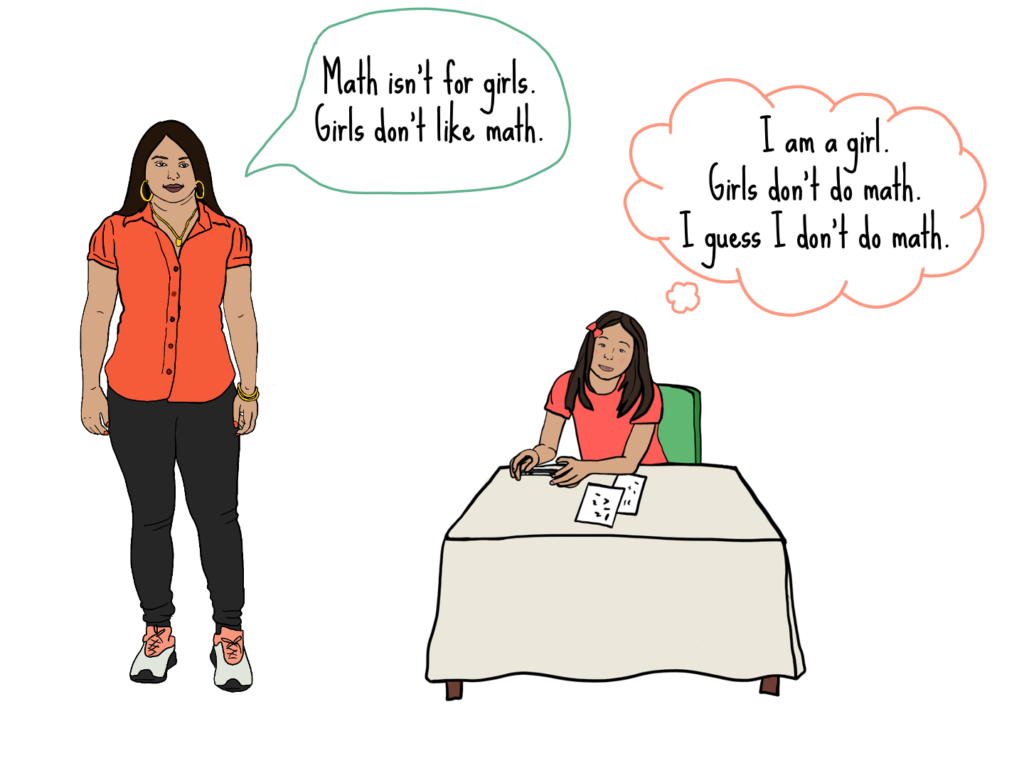
We know that there are cultural stereotypes that reinforce the idea that “Girls don’t like math.” But, scientists have recently gone beyond this to explore how children balance their thoughts about themselves and the cultural stereotypes they are exposed to. What they found is powerful. A child who thinks “I am a girl,” and experiences the almost unavoidable cultural stereotype that “Girls don’t do math” starts to believe that “I don’t do math”.
Research shows that across many different cultures, children start balancing how they think about themselves with these cultural stereotypes as early as elementary school. The tendency to balance how we think of ourselves with stereotypes may be culturally universal. Trying to find this balance may even impact both children’s cognitive and social-emotional development. They have to juggle their current thoughts and feelings about themselves and what the society expects of them.
-
- Academic sense of self
- how a person thinks of themself as a student
- Bias
- the belief that some people or ideas are better than others, usually resulting in unfair treatment
- BIPOC
- Black, Indigenous, people of color
- Conscious
- thoughts or feelings that we are aware of
- Growth mindset
- the belief that, with effort, you can learn and achieve new things.
- In-group preference
- the tendency to form close relationships with others in a person’s same groups
- Self-esteem
- a cluster of characteristics, such as feeling confident, having pride in oneself, and a sense of self-worth
- Sense of self
- how a person thinks and feels about their self
- Stereotype
- a widespread belief that a person must have a trait because they belong to a particular group
- Unconscious
- thoughts or feelings that we are unaware of